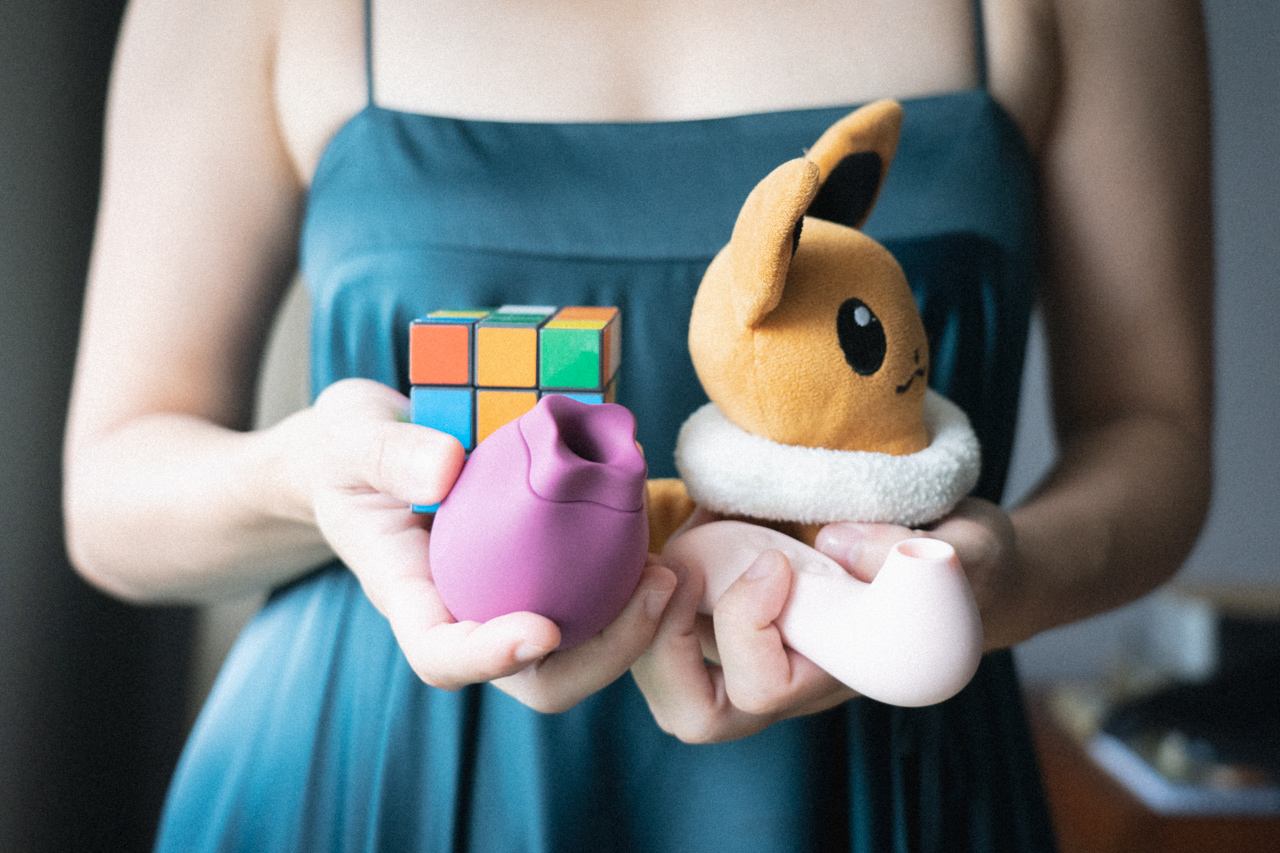These days, conversations about our bodies aren’t as taboo as they used to be. Even in conservative Asian cultures such as ours, we’ve shifted towards franker discussions of our relationship with sexuality and self. In our ‘Intimates’ series, we’d like to kickstart open conversations about the wellness of our private parts—in both the physical and psychological sense. Today, we talk about motherhood and masturbation.
All images by Zachary Tang for RICE Media.
It’s an ordinary weekend. While paying for some daily necessities at Watsons, a host of sex toys and condoms sit on a nearby shelf, daring to meet my eyes. Curious but wary, eyeballs dart across like a skilful ninja; feet shift awkwardly as though attempting a new viral dance.
Chances are you’re familiar with this scene too, especially if you’re female. There seems to be this veil of shame enveloping sex toys and female self-pleasure till this day. Our conservative culture says: Want some steamy action? Keep it on the down-low or risk being judged. Worse, get called a slut (gasp!).
Add motherhood to the mix and things get muddled even further. Think sitcoms where mums dedicate their lives to nothing but domesticity — Claire Dunphy of Modern Family, for one, is portrayed as the classic, underappreciated stay-at-home mum (up till season 5).
The idea of frigid mums has been perpetuated through the media for decades; a stereotype long etched in the minds of many.
Motherhood: Balancing Act with Little Time to Sexplore
In many ways, a day in the life of Andrea and Nina has been the life of harried mums too.
As with most motherhood journeys, these women have once succumbed to the Unrealistic Mother role. That is, to be a selfless giver devoid of needs, choice and individuality.
Stepping into Andrea’s house, the first sights were of children’s toys strewn across the living room. Handling client meetings, chores, and a photo shoot within a day? No wonder she seemed slightly flustered.
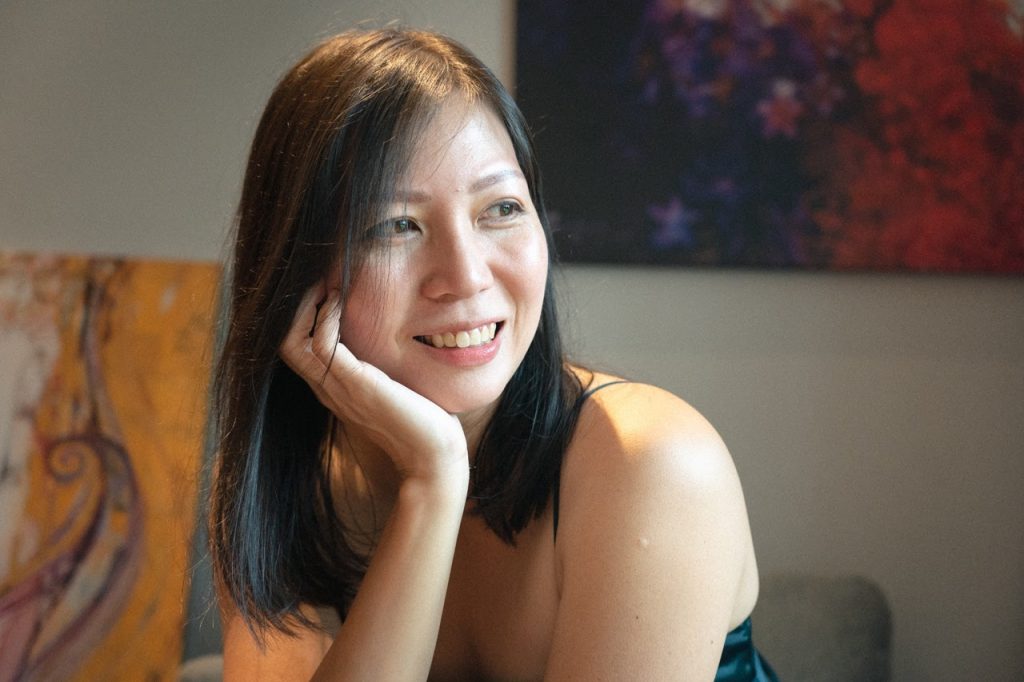
Having left the corporate world of fintech a couple of years back, Andrea is now a certified sex, relationship and intimacy coach; though reasons for the career pivot weren’t specified.
The 41-year-old single mum now views the early stages of motherhood as a blurry mess.
“Everybody seemed to have something to say about how to be a good mother,” she says.
“I was so tired from fulfilling obligations that I had no time to check in on how I was even doing. I realised, only later on, how I neglected so much of my life.”
Fellow mother Nina, who’s 30 this year, struggles with achieving that balance too. With her son in kindergarten this year, much of her schedule revolves around him.
A typical day involves the usual mummy duties — sending him to school in the morning and picking him up in the evening; all while juggling full-time work as a Social Media Marketer and mundane house chores.
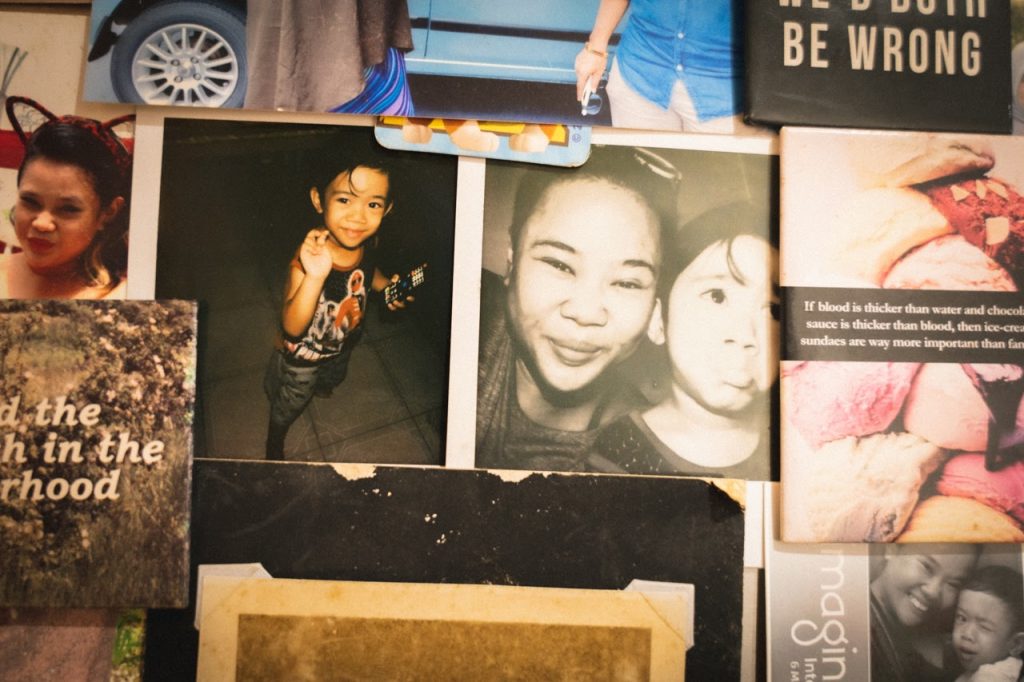
“In that sense, your routine changes drastically as a mum. Even peeing and pooping can be difficult at times,” she jokes.
“Being a mum is selfless and very meaningful. But sometimes, you can forget who you are.”
Juggling everything at once is no mean feat. Still, society continues to set impossibly high standards where mothers are expected to appear in control at all times. Unsurprisingly, many mums gradually lose sight of their personal identity and needs.
As if it weren’t enough, mothers also face other unsolicited effects of pregnancy; both on the physical and psychological fronts.
“For some reason, the body you see in the mirror doesn’t coincide with what you picture in your mind. You can only hope that weight bounces back miraculously,” Andrea notes.
“There was hair loss, stretch marks. But to be honest, I didn’t pay much attention until I saw pictures years later. I guess that shows the extent of how busy I was.”
At one point, while taking us through her home, Nina points to old photos on the fridge, exclaiming: “Look at how skinny I was!”
Postpartum naturally takes a toll on one’s confidence. For Nina, motherhood meant feeling unattractive after witnessing breasts that went from “perky Bs to sagging Cs.”
“I was breastfeeding all the time. It felt like my body was no longer mine but a shared commodity,” she confessed.
Self-pleasure is Self-love, Not Selfish
A passing remark remains imprinted in Andrea’s memory: “Mothers are not supposed to be sexy.”
Though it might have been said without much thought, it reflects a sentiment that lingers in many people’s minds.
“Mums and sex. It’s a concept that people can’t seem to gel together. I never understood why these have to be separated,” Andrea quips. “Women don’t just shut down once they spawn.”
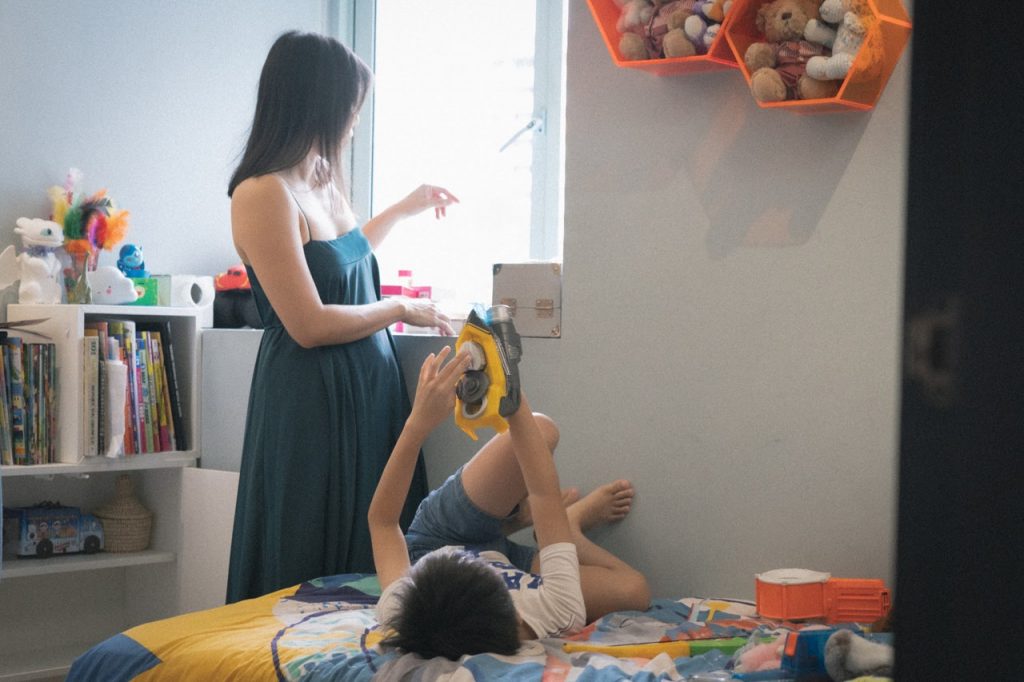
For decades, sex toys have rarely been a topic of public discussion too. But Nina and Andrea believe that mothers ought to talk about self-pleasure with the same allure as other motherly topics — recipes, clothes, or their child’s education, for instance.
With all earnestness, Nina explains: “We pamper ourselves with gifts once in a while, so why not sex toys?”
Not until recently, sex toys have primarily been designed by men and thus mimic the anatomy of males’ privates. Certainly, women need more than just the bang. This lack of knowledge surrounding female pleasure, in fact, is one main reason for the orgasm gap.
As a resident noob in the sex toy department, my knowledge was previously limited to the typical dildo. Interestingly, Andrea shared that her preference typically sways towards products that aren’t shaped like penises.
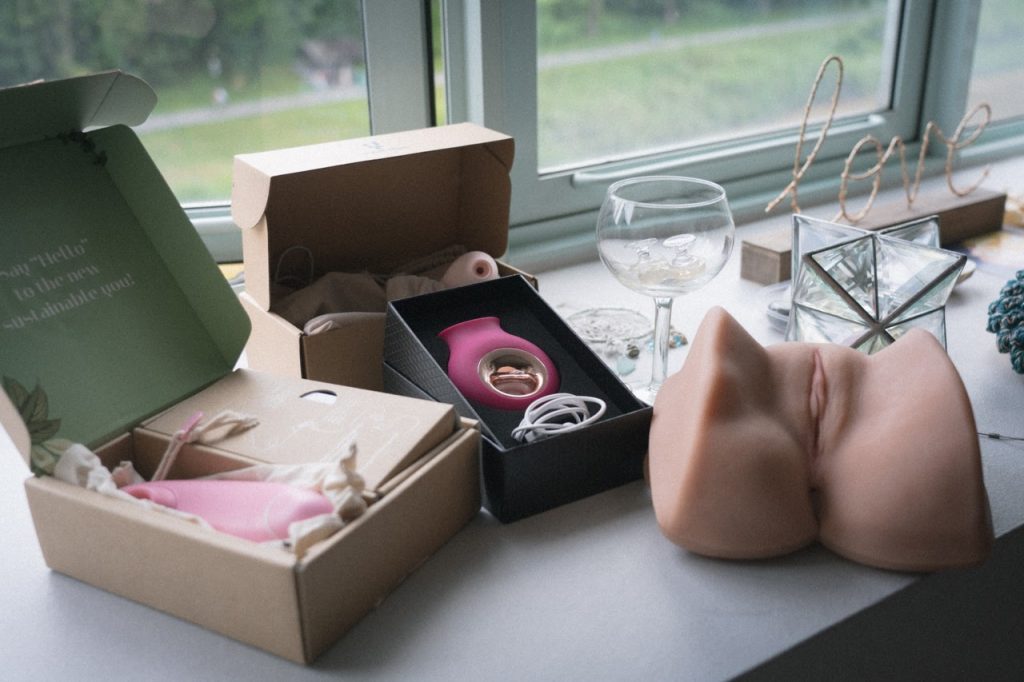
Some of her favourites include The Koi and The Poet — products that aim to stimulate the female clitoris with gentle pulses, suctions and vibration modes sans penetration. A bonus, she says, is that they look both chic and discreet.
Another reason? Practicality. “Honestly, mums don’t have much time. These are great for overall pleasure and it’s a lot easier to handle too.”
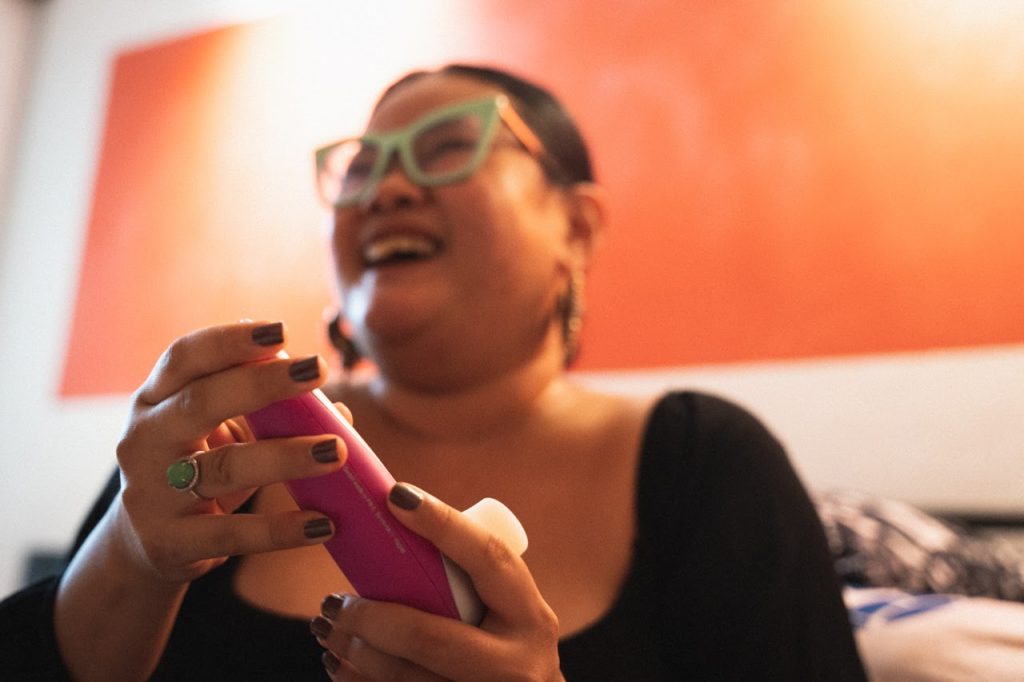
Just like shopping for clothes, Nina browses through online stores for sex toys with her husband from time to time. These new and exciting picks would be added to their growing collection.
One of Nina’s go-to toys focuses on clitoral stimulation. The Womanizer, as it’s called, is a small but mighty toy that utilises air pressure technology for maximum pleasure. Think of it as a contactless clitoral massage designed for relaxation.
Sexy times, according to Nina, can be difficult to come by for most mums because of their busy schedules. Still, she makes it a point to get down to it on the rare free afternoons or late nights after putting her child to sleep.
An occasional locked door can be hard to explain (and mums worry about getting caught too), but Andrea rewards herself with self-pleasure after a whirlwind of chores during pockets of free time. She sees the act as simply another method of self-care.
Beaming, Nina says: “The whole act of self-pleasure is self-affirming. It is the highest form of self-love. It’s me telling myself that I’m worth it.”
Be Patient. Sexual Awakening Is a Journey
These women radiate confidence, and I wondered if it took them some time to reach this point.
Comparing sex to an aimless trek in the woods, Andrea illustrates: “Imagine going on a journey with no resources. When I was younger, everything felt so confusing.”
Many of her clients come to her precisely because they still feel lost in the woods.

“After childbirth, some mothers experience pain and discomfort during sex. Or they’ve lost sexual desire even though they once had it,” she explains.
Many turn to doctors to solve their physical issues, but there are often psychological underpinnings that need to be addressed too.
“Being sexually awakened is figuring out what works for you — what you like and dislike.”
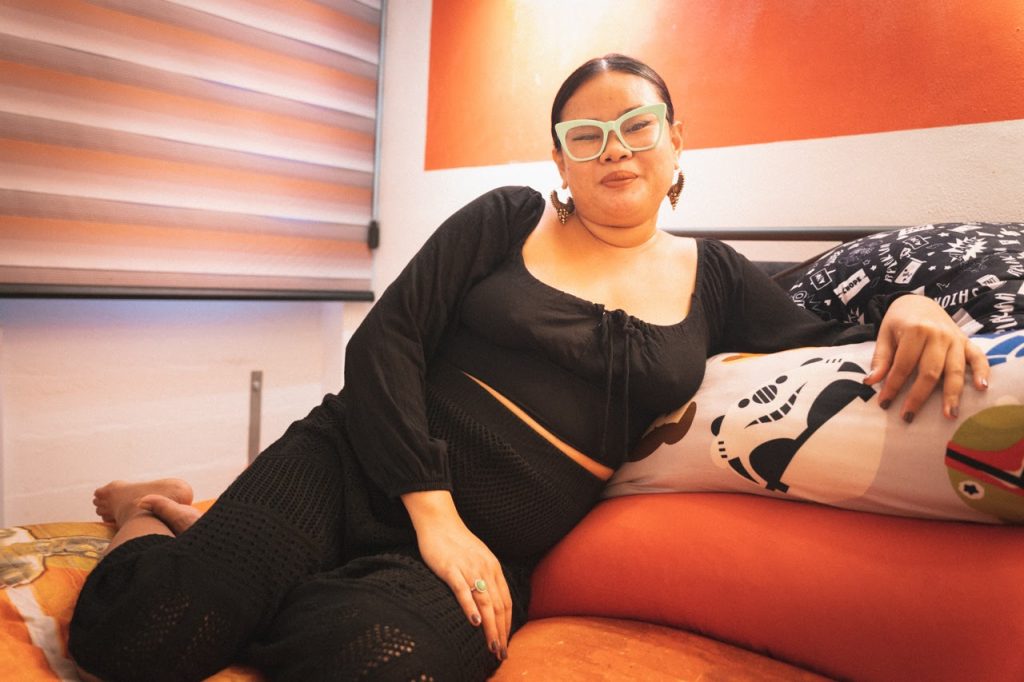
Nina, who grew up in a traditional Muslim household, equally believes in breaking the taboo.
“I understand the cultural sensitivities involved. But it’s equally important to be educated. I used to not know how our body works,” she admits. “I was raised to think that kissing could lead to pregnancy.”
I soon learn that Nina’s biggest motivations in being vocal about sex today lie in her harrowing experience as a victim of rape at the tender age of 14.
The ordeal led to pregnancy, abortion, and depression, along with an impacted sense of self-worth.
It took years of mentorship under the non-profit organisation Beautiful People for Nina to restore what was taken from her. Even at 30, she continues to work through the trauma of assault that creeps up every once in a while.
In hopes of desensitising the topic of sex, she tries to inject difficult conversations about intimacy into daily life today.
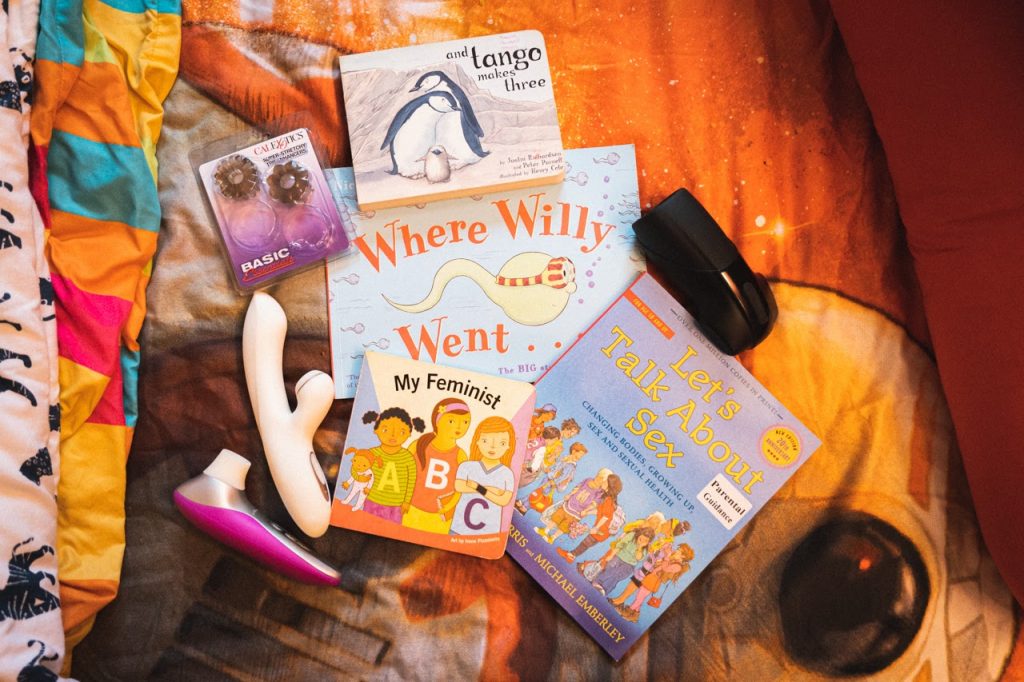
As a friend, she lightly introduces pleasure toys as a way to unwind or spice up the bedroom. As a mother, she teaches her son the importance of boundaries and consent. As a partner, she openly talks about her sexual preferences.
One thing is clear: No one is born as a sexual god or goddess. Like most things in life, the act of sex, or self-pleasure, must be learned, discovered and negotiated with patience.
Honour Women As a Whole
One of the most powerful acts that women can demonstrate is to express their multiple hats — whether it be a mother, girl boss or lover. Still, society defaults to compartmentalising women into categories.
“In cases where mothers are sexually empowered, people then go to the extreme and label them MILFS,” Andrea adds, her tone resigned.
“It’s either that or become an auntie. Women can’t just be themselves.”
In trying to delve into the psyches of these women, I had to confront my own irrational discomfort with open sex talk. Fight that squeamishness though, and you’d be surprised at how empowering it can be.
While I may not be a mum just yet, I still long for the day where mothers prioritise themselves; where they can take ownership of their sexuality as individuals first before the roles they’re tied to.
Who knows? Mums might be able to peruse sex toy aisles one day, free from the scrutiny of others. To be liberated is to add motherly items — diapers, baby bottles, pacifiers — alongside vibrators to a shopping cart without the fear of judgement.

